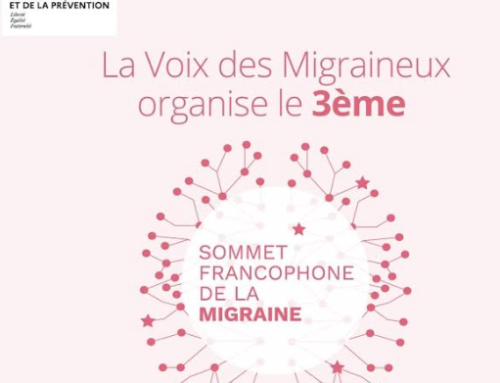Migraine and sleep
Migraine and sleep
The relationship between sleep and migraine has long been poorly understood, and unfortunately, this connection is still not clear for researchers.
According to this study on triggers of severe migraine attacks published in 2007, 95% of migraine sufferers attribute their migraines to at least one trigger, with sleep disturbances ranking as the most common triggers for 50% of patients.
Sleep disturbances (lack of sleep, excessive sleep, or sleep apnea) can trigger migraine attacks or headaches. Conversely, adequate sleep can relieve tension and reduce the risk of migraine attacks.
What is the link between sleep and migraine attacks? We’ve provided a brief summary of various studies addressing this topic.
🫁 What are the links between breathing during sleep and migraine?
🫁 What are the links between breathing during sleep and migraine?
Several studies have been conducted to establish a connection between sleep apnea and migraine on one hand, and between snoring and migraine on the other hand.
The body, especially the brain, needs a continuous supply of oxygen. A decrease in oxygen levels can promote the onset of migraine attacks. Sleep apnea and snoring may both lead to a reduction in oxygen intake. This is why there is a potential link to be explored between sleep breathing and migraines.
It’s important to note that research on sleep is still limited and relatively recent. The findings from these studies can be considered, but no clear and precise connection can be established between sleep and migraines. Research on this topic is far from conclusive.
Sleep apnea is characterized by a kind of breathing blockage, leading to a decrease in oxygen supply to the blood, which affects an individual’s cardiovascular and brain health.
A study published in the journal Cephalalgia aimed to investigate the prevalence and characteristics of migraines and sleep apnea. This study was conducted in Norway in 2011 with 431 participants to establish a relationship between headaches and sleep apnea. The result of this study showed that 11.8% of participants with sleep apnea were diagnosed with morning headaches related to sleep apnea. Thus, this study supports the existence of a correlation between sleep apnea and morning headaches.
Snoring can also be related to morning headaches. Snoring results from a reduction or blockage of the upper airways, limiting the oxygen supply to the body during sleep. In a 2011 study, Chen et al. investigated the relationship between headaches and snoring. They observed the presence or absence of morning headaches in 268 snorers one day a week for six months. 23% of snorers experienced morning headaches. Snoring could, therefore, be associated with morning headaches.
Apart from oxygen supply problems related to sleep apnea or snoring, migraines might also be linked to other sleep disorders such as drowsiness, poor sleep quality, and insomnia. If you suspect you have sleep disorders, consult a doctor or a pulmonologist who can guide you toward appropriate treatment.
Please note that the studies are not comprehensive enough, and a clear link between sleep apnea, snoring, and migraines cannot yet be established.
😴 How sleep influences the onset of migraine?
😴 How sleep influences the onset of migraine?
Several studies (unfortunately, on a limited number of patients) have been conducted to establish a link between sleep quality and migraine.
Two factors have been identified: sleep quality and sleep duration.
After a poor night’s sleep, where sleep is not restorative and has been fragmented, a migraine sufferer is more likely to experience a migraine attack. According to a study published in the journal Neurology conducted in the United States in 2020 with 98 episodic migraine patients, the likelihood of having a migraine attack the following day was 39% higher when sleep duration was insufficient, fragmented, or of poor quality compared to a “normal” night’s sleep. Thus, sleep quality is linked to the onset of migraine the next day.
Sleep duration is not the only factor identified in research. Sleep duration also plays an important role. The repetition of short nights significantly increases the probability of experiencing a migraine attack. Two studies have established a connection between sleep duration and migraine.
A study conducted in 2016 on 62 episodic migraine sufferers, with the aim of analyzing triggering factors in episodic migraineurs (those who experience between 2 and 14 migraine days per month), showed that the probability of having a headache after sleep deprivation is 55%.
Another study was published in the journal “Pain” to assess the relationship between sleep duration and headaches in patients suffering from chronic headaches. This study was conducted on 55 patients and demonstrated that two consecutive nights with less than 4 hours of sleep were predictive of migraines. Conversely, after two nights with approximately 8 hours of sleep, the probability of experiencing a migraine decreased.
So, getting insufficient sleep would increase the risk of migraines. However, even if you’ve gone to bed late, it’s not recommended to wake up later than usual. Sleeping in disrupts the routine of a migraine patient (e.g., the morning coffee or breakfast routine). Changing routines is known to be a triggering factor, which is why it’s recommended to wake up at roughly the same time every day, even if you went to bed late, perhaps taking a short nap in the early afternoon if necessary.
🍀 What are the solutions to limit the impact of sleep on migraine?
🍀 What are the solutions to limit the impact of sleep on migraine?
Some “tips” can help reduce sleep-related migraines:
- Follow a fixed morning routine: Keeping a consistent morning routine helps avoid disruptions, a known trigger for migraines.
- Avoid drowsiness: If you can’t get enough sleep, don’t nap during the day. Engage in quiet activities like reading or knitting. When you start feeling tired again, go back to bed. This can help reduce the risk of a migraine.
- Limit stimulants: Avoid consuming stimulants like coffee, tobacco, or alcohol in the evening, as they can disrupt your sleep.
- Reduce screen time before sleep: Electronic screens constantly demand our attention, preventing restful sleep. Limiting screen time before bedtime can help.
- Control room temperature: The ideal room temperature for good sleep is between 15°C and 17°C.
In conclusion, there may be a link between sleep and migraines, but research is still limited or conducted on small populations, making it challenging to establish a definitive connection. In the meantime, it’s worth taking steps to care for your sleep, which can’t hurt.





